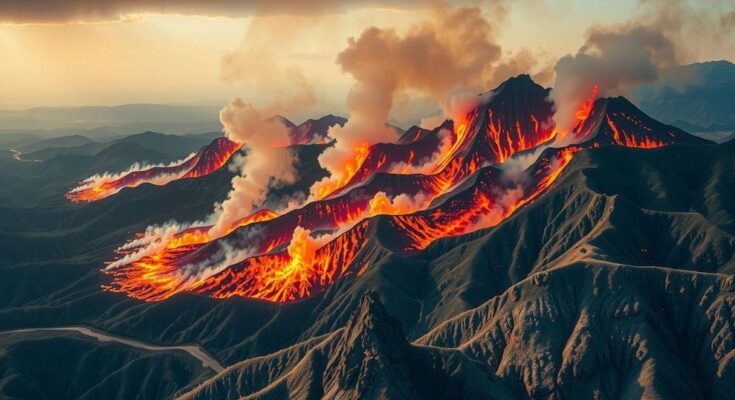The notion that climate change is solely responsible for recent wildfires is inaccurate. Historical data indicate that while climate conditions can influence fire severity, human actions are the leading cause of modern wildfires. Factors such as land management practices and human behavior have a more substantial role than climate change predictions suggest.
The assertion that climate change is the primary driver of recent catastrophic wildfires is misleading. Although increasing temperatures and drought conditions foster environments ripe for forest fires, historical data indicate that severe wildfires have long arisen due to natural climate cycles. Research highlights incidents of significant fires occurring not only in recent decades but throughout past centuries, revealing no definitive trend toward increasing wildfire severity over time. Human activities, such as logging, land clearing, and the introduction of non-native species, have profoundly influenced wildfire behavior, with evidence suggesting that the majority of modern wildfires result from human actions rather than natural causes.
Since the archival records dating back to 1916 illustrate comparable fire scales in federal lands, the pattern of fire occurrence remains consistent. While climate models predict more frequent wildfires, the reality is that human-caused fires dominate, with statistics showing that approximately 75% of recent wildfires in regions like Oregon and Washington stem from human actions. Cases of arson are particularly concerning, as their detection can be challenging, and human-caused fires tend to be more ecologically damaging than those ignited by lightning. Additionally, factors such as forestry practices and fire suppression strategies have contributed significantly to fire dynamics, challenging the narrative that climate change alone is responsible for intensified fire incidents. The ongoing dialogue on wildfires must incorporate a broader perspective that includes historical context and human influence on ecosystem management.
The discussion surrounding wildfires often centers on the link between climate change and fire severity. However, a variety of natural climate cycles and human activities have historically shaped the frequency and intensity of these fires. Over the last few millennia, researchers have documented significant periods of fire activity coinciding with natural climate fluctuations. This historical context is crucial in understanding the modern landscape of wildfires in the United States and the multifaceted causes of fire incidents today. Despite the emphasis on climate-driven fire prediction, data illustrates that human contributions, including agricultural practices, unauthorized land management, and logging, play pivotal roles in fire genesis. Recent studies indicate a growing human association with wildfire events, further necessitating a comprehensive examination of all contributing factors, including ecological management and land use changes.
In summary, while climate change contributes to environmental conditions that can exacerbate wildfires, it is not the sole or primary cause of recent fire incidents. Instead, historical and contemporary evidence indicates that human activities significantly influence wildfire dynamics, often resulting in more severe ecological damage than naturally occurring fires. Continued examination of human impacts and the historical context of forest fires is essential in shaping effective wildfire management strategies and public policy initiatives.
Original Source: www.dailysignal.com




